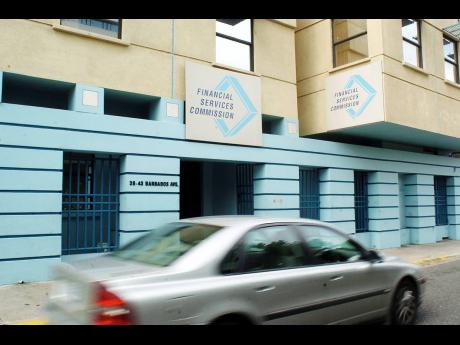Editorial | FSC bosses must clear air
The Government’s intention to bring greater transparency to the operations of securities companies is one positive outcome from the ongoing scandal at the traders, Stocks and Securities Limited (SSL).
However, with the SSL matter still inflicting reputational damage to Jamaica’s financial sector, Nigel Clarke, the finance minister, should urgently implement some of his proposed measures, even on an interim basis, rather than wait 18 to 24 months for the full roll-out of a new oversight regime for the sector. Rebuilding confidence is a matter of urgency.
In the meantime, the chairs and other governors of the Financial Services Commission (FSC) over the past dozen years owe Jamaicans a full explanation of their stewardship, if they in fact kept Dr Clarke in the dark about the ongoings at SSL in the time that he has been finance minister.
They would not only have broken the law, but displayed grave dereliction of duty and responsibility. This would call into question their fitness to sit on public boards – a conclusion that, on the face of it, is incongruous with the known skills, abilities and integrity of the persons involved.
INTERNAL OVERSIGHT
Based on data provided by Dr Clarke at his briefing on Monday, SSL had around $29 billion in assets under management, or two per cent of what the finance minister said is a $1.45-trillion securities market. It is not clear how much of SSL’s portfolio represented on- or off-balance sheet transactions. While two per cent of the market, if lost, would not necessarily translate to a systemic crisis, $29 billion is a lot of money, which, if went missing, would mean the peril of many people.
However, long-whispered rumours about weaknesses in SSL’s internal oversight, and its flirtation with insolvency, broke into the open a fortnight ago following the alleged theft of $2 billion, or more, from the company’s clients’ accounts. One of its investment advisers confessed to swiping around $150 million from her clients, or 20 per cent of the portfolio she managed. At the same time, the Jamaican athletics star, Usain Bolt, has claimed that the US$12.7 million ($1.9 billion) he held with the company is unaccounted for. However, two recent SSL CEOs say that they knew nothing of Mr Bolt as a client of SSL, even though his would have been among one of its biggest portfolios – approximately seven per cent of its managed assets.
Soon after the public emergence of the scandal, this newspaper published an FSC internal document showing efforts over more than a decade to bring SSL into regulatory compliance, before the regulator finally sent a manager into the company last week. SSL’s problem included its auditors qualifying its accounts in 2016 and questioning the company’s ability to continue as a going business. At the time, SSL had accumulated a deficit of $1.5 billion, suggesting that it was close to, or had already wiped out its equity.
On Monday, Dr Clarke said: “... as minister of finance and the public service, neither the FSC board of commissioners nor the FSC executive director nor any person from the FSC has ever raised Stocks and Securities with me in any way.”
This, without more, appears to be highly irregular behaviour, given the requirement of the Financial Services Commission Act that the agency, at least once a year, examine the affairs of the businesses it regulates “and within 90 days after the completion of the examination report to the minister the result of every such examination, and any such report may contain such recommendations as the commission considers necessary or desirable to correct malpractices or deficiencies discovered in the examination”.
UK MODEL
Given the state of SSL, it seems, from our distance, highly irresponsible that the findings were not in any way shared with Minister Clarke over his five years in the job. The commissioners, and the FSC’s top staff during the period, must say why.
In the meantime, Dr Clarke’s plan for a bifurcated oversight of the securities industry – he appears to be opting for the UK model, where the Financial Conduct Authority (FAC) regulates market-related activities and the Bank of England, through its arm called the Prudential Regulatory Authority, oversees financial/prudential compliance – deserves serious thought and robust discussion.
However, the proposal that security dealers publish their financial statements and material events, as is compulsory for listed companies, ought to be an uncontroversial requirement that should be instituted immediately.
That, plus tightening regulations against insider trading and transactions between connected parties, can be accomplished with simple amendments to the existing law – within days.
Even as he begins what should be a tight, focused and time-bound public discussion on the efficacy of the British model of securities oversight and its applicability to Jamaica, Dr Clarke must also act quickly on his promise to institute a forensic audit, by international experts, of SSL’s accounts. The search must lead where it will. The new FSC commissioners may also want to have a look at other entities in the market.
All of this may be discomfiting for Jamaicans, but the embarrassment is a small price to pay for long-term confidence in the country’s financial markets.

